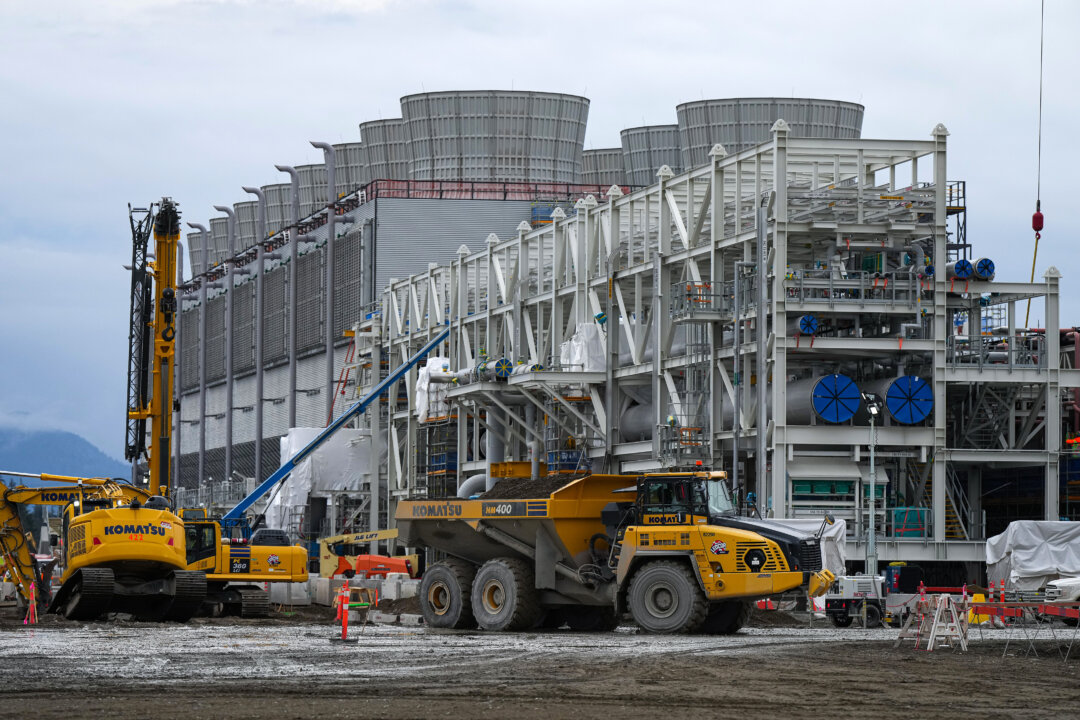Top Stories
Canada’s Economic Future at Risk Amid Indigenous Consent Uncertainty

A recent report from the Macdonald-Laurier Institute (MLI) has raised significant concerns regarding the role of indigenous consent in Canada’s resource development sector. The analysis, authored by Heather Exner-Pirot, suggests that viewing indigenous consent as a collaborative goal rather than a legal barrier is essential for improving the country’s economic prospects.
The report addresses a critical tension in Canadian policy. While Canadian courts have established a constitutional duty to consult and accommodate indigenous communities, they have not conferred an outright veto power to these groups. This legal framework has resulted in a growing ambiguity between what constitutes consultation and what constitutes consent. As a result, citizens, investors, and policymakers face uncertainty about the necessary conditions for moving forward with various projects.
This ambiguity poses significant challenges to Canada’s economic landscape. The country’s capacity to initiate large-scale, job-creating ventures in sectors such as energy, mining, transportation, and infrastructure is increasingly hampered not just by environmental regulations, but also by procedural uncertainties. The fundamental question of who ultimately holds decision-making power has emerged as a considerable barrier to maintaining Canadian competitiveness.
Impact on Investment and Development
The implications of this uncertainty extend beyond legal definitions. Investors are becoming cautious amid shifting regulations and unclear pathways to project approval. The hesitation stems from concerns that a lack of clarity regarding indigenous consent could lead to delays, increased costs, or even the cancellation of projects altogether.
For instance, Canada has been striving to attract significant investments in renewable energy initiatives. However, without a reliable process for securing indigenous consent, potential investors may reconsider their participation. The economic fallout could be substantial, impacting job creation and technological advancements in critical sectors.
Exner-Pirot emphasizes the need for a more unified approach to resource development that incorporates indigenous perspectives. By fostering genuine partnerships between indigenous communities and industry stakeholders, Canada could establish a framework that not only respects indigenous rights but also promotes economic growth.
Seeking Solutions for Clearer Pathways
To navigate this complex landscape, stakeholders must seek solutions that clarify the process of obtaining indigenous consent. This could involve developing standardized consultation practices that provide clear guidelines for both indigenous groups and project developers. Such practices would help delineate the responsibilities of each party while ensuring that indigenous voices are adequately represented.
The path forward requires collaboration and dialogue, aiming to transform the current state of uncertainty into a more productive and inclusive environment for resource development. By doing so, Canada can work towards realizing its potential as a leader in sustainable resource management while respecting the rights and interests of its indigenous populations.
As the nation grapples with these challenges, the upcoming discussions among policymakers, industry leaders, and indigenous representatives will be crucial. The outcomes of these dialogues will determine not only the future of resource development in Canada but also the broader economic landscape that relies on these critical sectors.
In conclusion, the need for clarity regarding indigenous consent is urgent. Addressing this issue head-on will be essential for safeguarding Canada’s economic future and enhancing its global competitiveness.
-

 Education3 months ago
Education3 months agoBrandon University’s Failed $5 Million Project Sparks Oversight Review
-

 Science4 months ago
Science4 months agoMicrosoft Confirms U.S. Law Overrules Canadian Data Sovereignty
-

 Lifestyle3 months ago
Lifestyle3 months agoWinnipeg Celebrates Culinary Creativity During Le Burger Week 2025
-

 Health4 months ago
Health4 months agoMontreal’s Groupe Marcelle Leads Canadian Cosmetic Industry Growth
-

 Science4 months ago
Science4 months agoTech Innovator Amandipp Singh Transforms Hiring for Disabled
-

 Technology4 months ago
Technology4 months agoDragon Ball: Sparking! Zero Launching on Switch and Switch 2 This November
-

 Education4 months ago
Education4 months agoRed River College Launches New Programs to Address Industry Needs
-

 Technology4 months ago
Technology4 months agoGoogle Pixel 10 Pro Fold Specs Unveiled Ahead of Launch
-

 Business3 months ago
Business3 months agoRocket Lab Reports Strong Q2 2025 Revenue Growth and Future Plans
-

 Technology2 months ago
Technology2 months agoDiscord Faces Serious Security Breach Affecting Millions
-

 Education4 months ago
Education4 months agoAlberta Teachers’ Strike: Potential Impacts on Students and Families
-

 Science4 months ago
Science4 months agoChina’s Wukong Spacesuit Sets New Standard for AI in Space
-

 Education3 months ago
Education3 months agoNew SĆIȺNEW̱ SṮEȽIṮḴEȽ Elementary Opens in Langford for 2025/2026 Year
-

 Technology4 months ago
Technology4 months agoWorld of Warcraft Players Buzz Over 19-Quest Bee Challenge
-

 Business4 months ago
Business4 months agoNew Estimates Reveal ChatGPT-5 Energy Use Could Soar
-

 Business4 months ago
Business4 months agoDawson City Residents Rally Around Buy Canadian Movement
-

 Business4 months ago
Business4 months agoBNA Brewing to Open New Bowling Alley in Downtown Penticton
-

 Technology2 months ago
Technology2 months agoHuawei MatePad 12X Redefines Tablet Experience for Professionals
-

 Technology4 months ago
Technology4 months agoFuture Entertainment Launches DDoD with Gameplay Trailer Showcase
-

 Technology4 months ago
Technology4 months agoGlobal Launch of Ragnarok M: Classic Set for September 3, 2025
-

 Technology4 months ago
Technology4 months agoInnovative 140W GaN Travel Adapter Combines Power and Convenience
-

 Top Stories3 months ago
Top Stories3 months agoBlue Jays Shift José Berríos to Bullpen Ahead of Playoffs
-

 Science4 months ago
Science4 months agoXi Labs Innovates with New AI Operating System Set for 2025 Launch
-

 Technology4 months ago
Technology4 months agoNew IDR01 Smart Ring Offers Advanced Sports Tracking for $169










